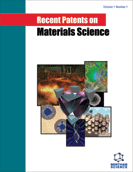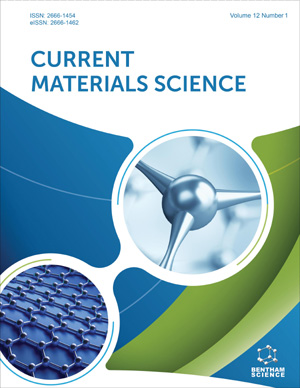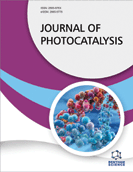Abstract
This manuscript reviews the recent patents and literature on the development of sustainable resource based polymer blends. In recent years, much attention has been focused on the research to replace petroleum-based polymers with renewable resource based materials that exhibit competitive mechanical properties. A great deal of work is focused on polymer blends to understand the mixing dynamics at the molecular level. The modification of polymer blends by using sustainable resource based polymers can not only fulfill our ecological but also our economic and social needs. The compatibility studies of linseed oil and castor oil based epoxy and polyesteramide blends with polyvinyl alcohol (PVOH) are discussed. These blends exhibit miscibility in the concentrated solution phase which can be correlated with their behaviour in the solid phases. The use of such natural plasticizers, with low toxicity and good compatibility with several plastics, resins, rubber and elastomers in substitution of conventional plasticizers, such as phthalates and other synthetic conventional plasticizers holds potential for important applications, in pharmaceutical, biopackaging and medical fields. It is highly significant that rheological measurement which is a dynamic technique gives results about the blend’s characteristics being very similar to those obtained from ultrasonic velocity measurements, a stationary technique. Deeper understanding of their interactions and fundamental physicochemical and biochemical properties is needed in order to enable the design and production of desirable and competitive materials.
Keywords: Blends, compatibility, epoxy, poly (vinyl alcohol), rheology, sustainable resource.
 20
20

















